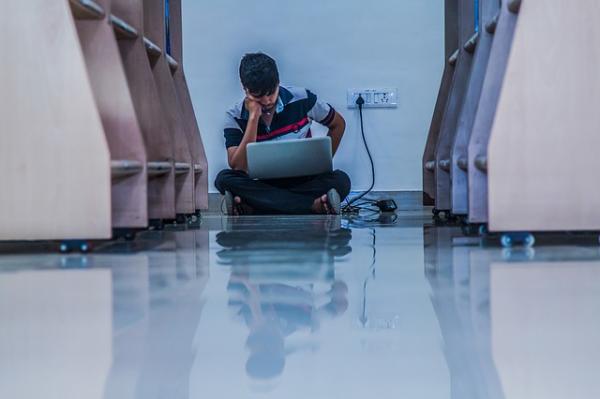The energy of my students was electric as we left the synagogue. As a member of an interfaith team of university chaplains and faith leaders at the University of Richmond, my students and I were attending a Friday night service at a local reform synagogue we had been invited to by my Jewish chaplain colleague. It was a unique service that contemplates the nature of the universe and God’s wisdom in the role of creation.
Coupled with verses from the Torah were contemplative quotes from Carl Sagan and Albert Einstein. For science-minded Muslim undergrads, it was a welcomed change.
One student, a particularly brilliant physics major, remarked on how open the congregation was to science and lamented his experience in the Muslim community, which he viewed as close-minded. As a result of this resistance he encountered among Muslims, particularly faith leaders, his faith was shaky at best.
However, we developed a relationship over coffee and conversations, where we delved into his struggles, and with a little help he was able to reconcile his faith, his lived experiences in the community and his passion for science and reason.
College is perhaps the most crucial time of an individual’s life. Young people are often introduced to a diverse student body and encounter a myriad of new ideas in the classroom. This can create a sense of “spiritual dissonance,” in which students struggle to reconcile these new ideas with their pre-established values and faith.
Muslim college students are a vulnerable group that needs support, not only in their academic pursuits but also in their spiritual well-being. Mentors and competent faith leaders can make a tremendous difference in the lives of Muslims in college, which in turn affects their relationship with Allah throughout the rest of their lives.
In my experience as a faith leader for various student groups, Muslim students are especially vulnerable because many are afflicted with two common spiritual issues: intellectual doubt and spiritual trauma.
Addressing Intellectual Doubt and Questions
These two issues are often intertwined, but more importantly, they are often the result of negative experiences young people have had within the Muslim community.
Intellectual doubt refers to the persistent crisis of faith that many students experience as a result of exploring different ways of thinking, usually in the classroom or from interactions with other students. For some, classes on politics and philosophy create questions regarding Islamic ethics. For others, the pressure to conform to a more humanist, sometimes even atheist, culture of science can be relentless.
Without a spiritual guide that understands how these various worldviews can interact with Islam, students with the intention of finding truth are often lost in a sea of -isms.
The Crossroads of College and Spiritual Trauma
Spiritual trauma can result from many causes, but I found that most students struggled with the way Islam had been pushed on them throughout their lives. Some had been forced to memorize Quran for hours everyday as a child. Others were forced to live extremely sheltered lives. Women may have been forced to wear hijab, excluded from school and athletic activities, and overall prohibited from having a social life — all in the name of Islam.
This doubt and resentment can chip away at young people’s faith, and college can serve as the proverbial nail-in-the-coffin. I’ve spoken with several students who had no interest in being a part of a Muslim community, and some were even unable to reconcile their faith with their experiences, thus leaving Islam entirely.
But many were able to see Islam in a new light when their experiences were put into context or new ideas were made compatible with the faith.
For college students, a traditional imam may not be able to fulfill this advisory and mentor role as well as a chaplain can. Because of past traumas, of which the mosque can be at the center, imams may not be seen as impartial. Also, imams can often err on the side of caution and orthodoxy instead of addressing new issues from a contemporary standing.
Imams are mostly trained in religious ritual and ethics, whereas chaplains receive special training to handle trauma and emotional distress. This is especially crucial for a population where many are suffering from spiritual trauma.
What is needed to alleviate this crisis of faith among Muslim college students is a generation of young faith leaders who have wrestled with these challenges, serving in chaplain-like roles. Some forward-thinking private institutions, like the University of Richmond, have become more willing to create such positions in pursuit of a more diverse and inclusive university.
Public universities can’t hire religious staff, but Muslim communities can start supporting solutions to college students’ needs. A part-time position can be easily financed and expenditures can be increased as time progresses. Because to leave Muslim students with no resources and no support will endanger the future generation of Islam in America.














